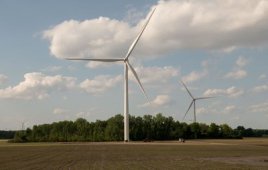
MEI forecasts that by 2030 every fifth car sold globally will be electric, like this Chevy Bolt, and not just in early adopter markets.
McKinsey Energy Insights (MEI), a data and analytics company that provides insight and support to the global energy industry, has released the 2018 Reference Case of its Global Energy Perspective (GEP) on long-term global energy demand.
Major shifts in the global energy landscape, particularly related to electric vehicles (EVs) and renewable energy sources. MEI forecasts that by 2030 every fifth car sold globally will be electric and not just in early adopter markets. Sales of EVs will rise from 3% in 2020 to 20% by 2030, however, the growth in light-duty electric trucks is expected to be slower, growing from 1% to 12% in the same period.
Renewables are expected to take almost all the growth in global power generation through to 2050. MEI expects that in the next 5 to 10 years it will become more economical to build renewable capacity than operate existing gas or coal-fired power plants in most markets. This will trigger further declines in the utilization rates of fossil-fueled plants, with solar and wind growing 5 to 10 times faster than gas. Overall, the additional global net capacity of power generation to 2050 will be 80% renewables, with China and India contributing more than 50%.
However, despite major growth in the EV market and the increasing dominance of renewables, a rising population and increasing wealth in non-OECD countries will drive significant energy demand growth, offsetting CO₂emission reductions elsewhere.
Ole Rolser, Associate Partner and Solution Leader at MEI, comments: “Despite the significant momentum around EVs and renewable energy sources taking an increasing share of the power market, energy-related emissions remain flat from 2030 to 2050. As developing countries continue to rely heavily on cheap coal, non-OECD energy demand will replace the efficiency gains made by OECD countries. To realize the two degrees pathway scenario, we’d have to see much broader, much more disruptive change than what we’re seeing now.”
GEP was developed by MEI supported by McKinsey and energy experts globally and across industries. It delivers long-term projections on how the energy transition will unfold to 2050 across 145 countries, 28 sectors, and 57 energy types.
McKinsey Energy Insights, a specialist analytics unit within McKinsey, provides distinctive analysis, insights, and support to energy players.
Filed Under: Uncategorized




